- The new Mercedes-AMG GT 63 goes up against its German rival, the BMW M8 Competition, in our latest comparison test.
- The AMG GT is back with a new all-wheel-drive powertrain, but still has striking good looks.
- We tested both cars on the track to see which is the king of the (non-Porsche) German coupes.
BMW M8 vs. Mercedes-AMG GT 63: Touring Car Battle
It's BMW vs. Mercedes-Benz once again, this time with V8s
When cool cars go away, there are no guarantees they'll come back. That's why we were sad to see the Mercedes-AMG GT depart a few years ago, but thrilled when the reborn AMG GT 63 made a triumphant return.
But rather than just bring the AMG GT out to our track to run the numbers, we decided to bring one of its chief rivals along for a little bit of fun. So, here's how the new Merc fares in our instrumented testing and how it stacks up against the absolutely ballistic BMW M8 Competition, a car that's reigned supreme in U-Drag after U-Drag, and one that never fails to impress.
Meet the contenders
We'll start with the newly re-introduced Mercedes.
2024 Mercedes-AMG GT 63
- Powertrain: twin-turbocharged 4.0-liter V8, all-wheel drive
- Power: 577 horsepower
- Torque: 590 lb-ft
- Transmission: nine-speed dual-clutch automatic
- Weight (as tested): 4,296 pounds
- Price (as tested): $206,160
The AMG GT's biggest change for this new generation is its transition to all-wheel drive, versus the rear-wheel-drive setup of the old car. And along with the ability to drive all four wheels comes some significant weight gain — the new AMG GT 63 is over 600 pounds heavier than the old AMG GT R that came with the same engine. There's also a new suspension setup with greater customizability for different environments and a rear-wheel steering system for increased agility.
2024 BMW M8 Competition
- Powertrain: twin-turbocharged 4.4-liter V8, all-wheel drive
- Power: 617 horsepower
- Torque: 553 lb-ft
- Transmission: eight-speed automatic
- Weight (as tested): 4,212 pounds
- Price (as tested): $158,095
The M8 Competition is significantly longer in the tooth than the Merc, as it hasn't been significantly updated since its debut in 2020. But underestimate its bite at your own peril, as the M8 still matches up well against the AMG GT.
By the numbers
We put both cars through the usual battery of tests to get their 0-to-60-mph and quarter-mile times, as well as 60-to-0-mph braking distances. They also took a trip around the skidpad to test lateral grip. And it turned out to be a very close battle, especially when it comes to acceleration. Here's how they did.
2024 Mercedes-AMG GT 63
- 0 to 60 mph: 3.1 seconds
- Quarter mile: 11.1 seconds at 122.5 mph
- 60 to 0 mph braking: 102 feet
- Skidpad: 1.08 g
2024 BMW M8 Competition
- 0 to 60 mph: 3.2 seconds
- Quarter mile: 11.2 seconds at 125.0 mph
- 60 to 0 mph braking: 106 feet
- Skidpad: 1.01 g
The acceleration figures are as close as can be, with the Mercedes just squeezing out the win by a single tenth of a second, even though it had a slower trap speed than the BMW in the quarter mile. But it enjoyed a slightly larger advantage when it came to braking and a much bigger win when it came time to measure its grip on our skidpad. This performance could definitely be, in part, due to the fact that the AMG GT 63 came wearing brand-new Michelin Pilot Sport 5S tires, the latest generation from Michelin, which have proven to be solid performers.
With the numbers in hand, it was time to get both cars on the track to see how they felt from behind the wheel.
Better on the track than you'd think
We did not go into our hot laps with a great deal of expectation for this pair, especially considering that both tip the scales at well over 4,000 pounds, which is less than svelte. But the agility and sharpness demonstrated by both coupes on our test track were very impressive, and while they're not "track cars" per se, they can be hustled around a circuit quite willingly.
The new AMG GT is a huge departure from its tail-happy predecessor. There's a clear rear bias to the AWD system, and you can get the back end to hang out if you really want to, but you have the added security blanket of AWD looming to keep things from getting too far out of hand. You also get rear-wheel steering, and that gives the nose of the car some assistance on turn-in, which is pleasingly sharp.
Though the AMG's steering is nicely weighted and very precise, it's devoid of feedback for the most part and the result is a slight bit of disconnect from the front wheels. There's a moment when you're really trying to get the nose of the car down to the apex of tighter corners where suddenly you realize you're turning the wheel in but aren't sure of the grip level. The suspension does a fantastic job of making the car stay neutral (even with all that weight), but even so, it's a car that can be a bit tougher to wrangle at the limit.
There's also a slight problem with the brakes and it has nothing to do with stopping power or feel. Brake fade starts to happen after just a handful of laps if you're pushing hard, which means that if you plan to track your AMG GT, the carbon-ceramic brake package (an extra $8,950) becomes a necessity.
The powertrain is an absolute monster. It works in great concert with the transmission, which ably downshifts and holds the engine in its powerband without intervention. Acceleration erupts with pleasing suddenness and plenty of sound to match it, on the outside at least. There's a weird fake engine noise that permeates the cabin that can feel artificial and a bit distracting, but you're moving so quickly that you don't have time to let it really bother you before the next corner appears.
If we have one complaint about the AMG GT, it's that driving it felt very mechanical. A member of our testing team said, "It feels like it's always trying to convince you that it's a very serious performance car," and as a result, the driving experience comes off feeling very calculated and almost clinical. The amount of grip, power and agility of the Mercedes is top-notch. We just wish it knew how to smile a little bit.
Oktoberfest on wheels
In stark contrast and representing the other side of the stereotypical German spectrum, the M8 Competition is a party on wheels. It's a rolling good time that starts the moment you press the accelerator and that snarling V8 leaps to life. The engine is really eager to rev and the gearing is short through second gear so you need to be quick to upshift. Turn the transmission into its most aggressive shifting pattern and you can rip through the gears snappily, though we found that to get the most out of the BMW, you'll have to take control of the paddles yourself.
The steering feels similar in weight and precision to the Mercedes, though turn-in is a hair slower. But the feedback is much better — you feel much better connected to what all four wheels are doing in the M8 and the car feels more alive as a result. The M8's AWD system doesn't seem to have the same rear bias but it does offer a RWD drive mode if you really want to get the rear end out, but on our tight circuit we opted for AWD pretty much the entire time as there isn't a lot of room to get the car sideways. It seems that in the BMW you can get on the gas a touch earlier coming out of corners than the AMG GT, and even if you do understeer never seems to rear its head. Our test vehicle also came with carbon-ceramic brakes that didn't fade a hair even after a long session of laps.
The M8 does everything you want it to with infectious joy. Want to drive it like a hooligan and slide around? It'll do that. Want to drive it tidy and have it hold clean lines at the edge of grip? Does that, too. You feel very in control of the experience and the car simply rises up to meet however you'd like to drive it with a competency that feels eager, rather than stoic.
Combining all factors
On top of that, we think the M8 Competition is also the better touring car with a more comfortable suspension and cozier front seats. The drawback is that Mercedes' cabin has better materials and a more modern design, while the BMW is on an older infotainment system and feels less upscale. But both feature wireless Android Auto and Apple CarPlay, which cuts down the technology gap, and neither features a usable back seat so that's a wash. (You can actually delete the back seat for free in the AMG GT.)
And of course, we can't skip the cost of these vehicles. The AMG GT 63's sticker price of $206,160 is nearly $50,000 more than that of the BMW, and that price would grow even higher if you add the carbon-ceramic brakes needed to keep up with the M8 Competition after more than a handful of laps. It makes the BMW feel like a bit of a bargain in comparison, which is not something we thought we'd ever say.
Edmunds says
The reborn Mercedes is a fantastic car. But the smiles-per-dollar calculation falls firmly on the side of the BMW, and that makes it the choice for us in this showdown.
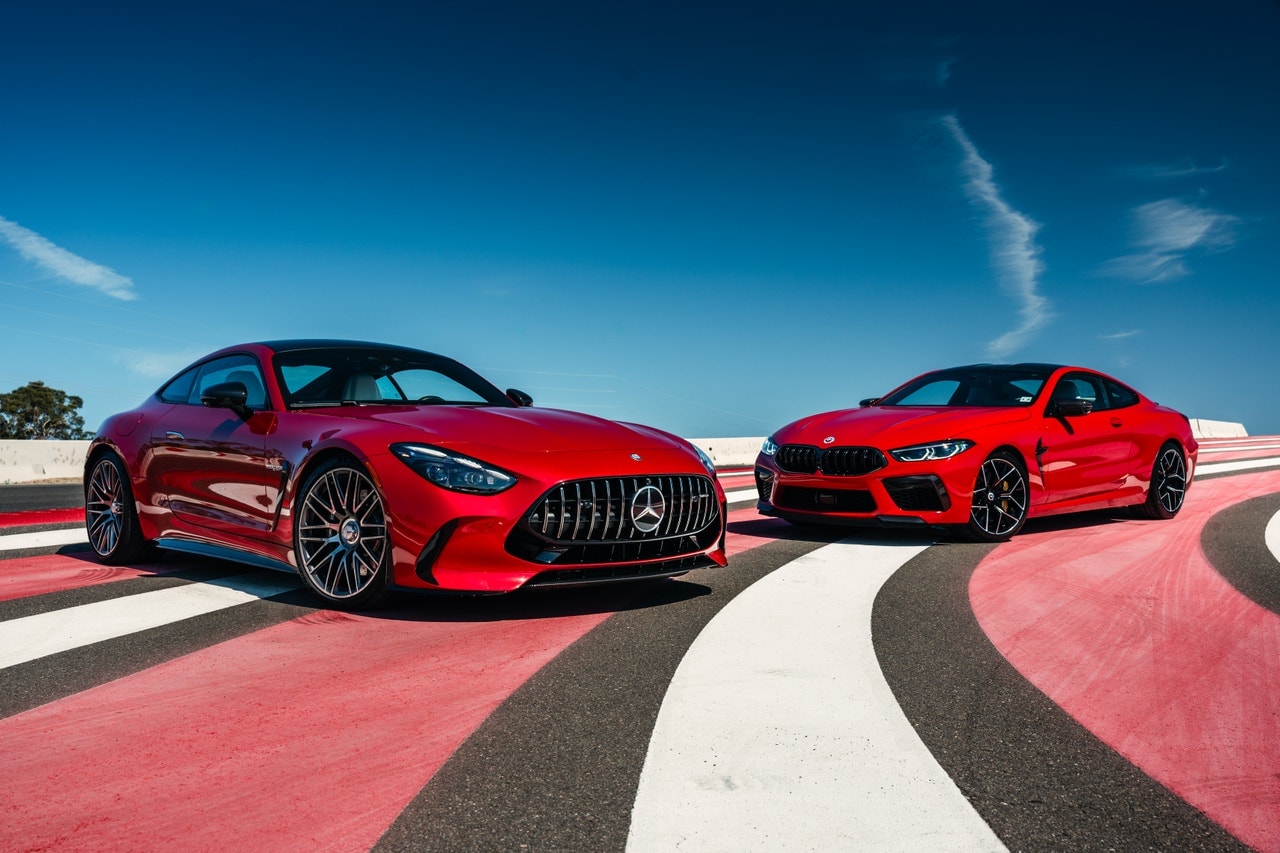
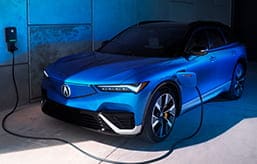

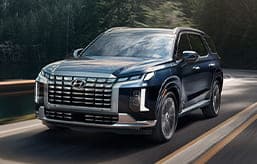
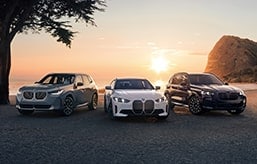
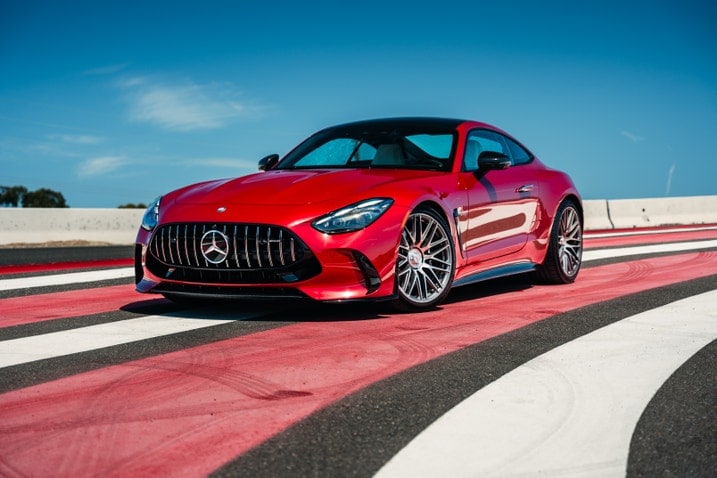
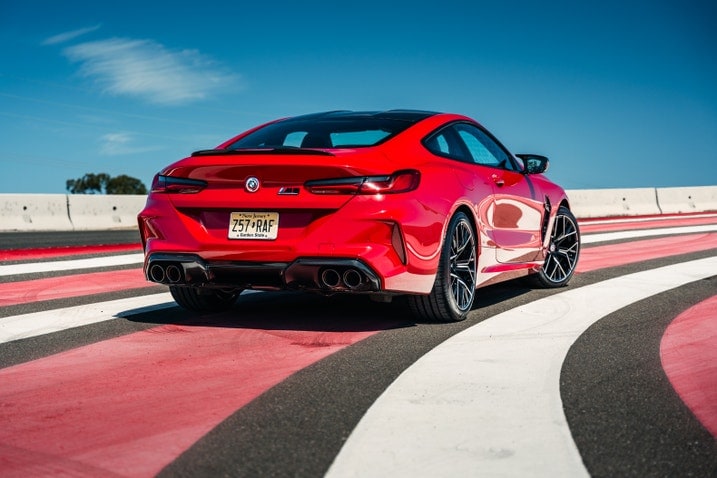
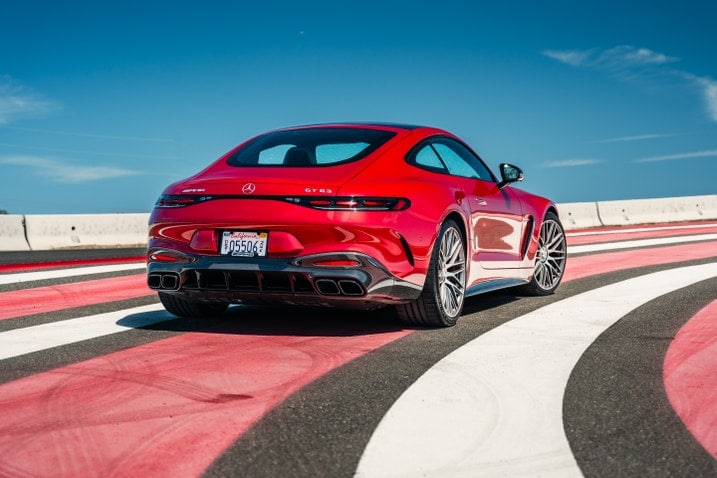
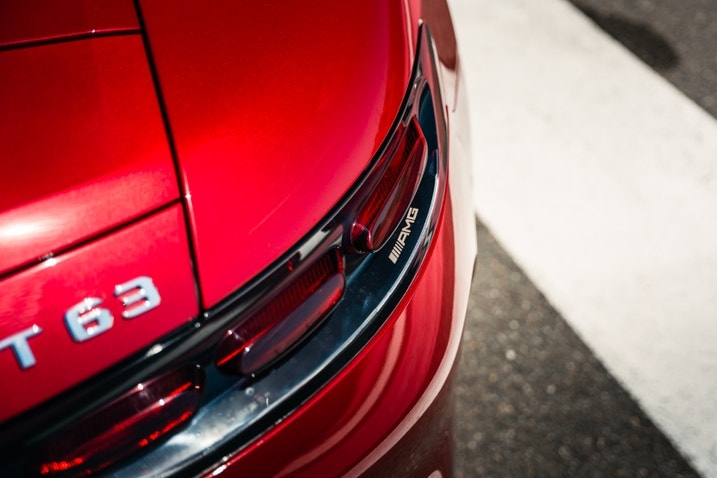
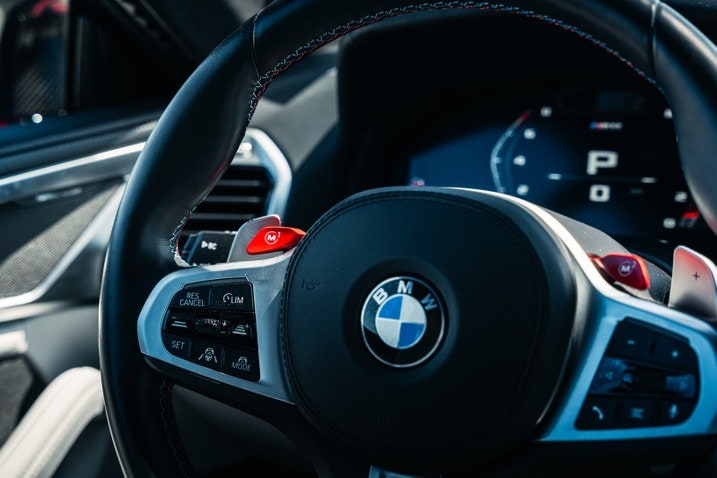
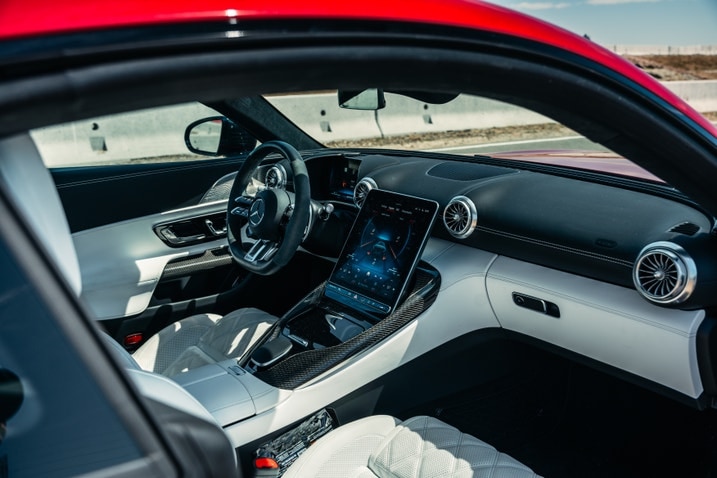
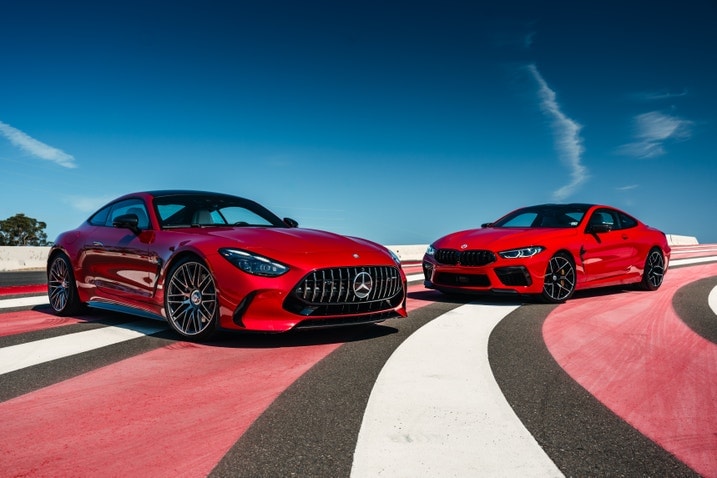
 by
by  edited by
edited by